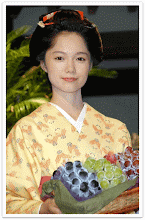As a Science Fiction fan I've always loved Star Trek for it's inclusiveness of Aliens and other races. In particularly when it originally aired at a time back in the 1960's when such roles for non-Caucasians were either few roles mostly delegated to playing out tired old racial & cultural stereotypes. Not so on Star Trek! Gene Roddenberry had a vision for the future that included people of all walks of life where people were treated as equals. While much has been written about the Nichelle Nichols break through the color barrier with her character Uhura, not so much has been written about the Nikkei of Star Trek. We at American Mishima decided to do something about that so here's our take on this overlooked issue.
It could be said that many of the Alien roles were place holders for America's friends and foes during the turbulent Vietnam Ear of the 1960's. Not every role such as Pavel Chekov played by Walter Koenig was so obvious. It had been some 21 years since writer-creator,producer Gene Roddenberry last flew B-17's against Japan for the 394th Bomb Squadron out of the captured Japanese airbase of Runga Point in Guadalcanal later renamed Henderson Field. Not much has been said of Roddenberry's reccollection of his 89 missions and experience. Before the Wars end he was decorated with the Distinguished Flying Cross and the Air Medal. Perhaps as with many veterans of that Greatest Generation, the experience of war changed their outlook on life and of their former enemies. Of all the non-Caucasian non-alien roles, Nikkei actors maintained an ever present presence on the Star Trek Franchise.
So where did this start? WWII or that first TV Pilot of Star Trek - The Cage? The Cage was Star Trek's original pilot that the network executives found "too cerebral" and mortified having a powerful female first officer (Majel Barret) and an alien officer (Leonard Nimoy) on the bridge of the USS Enterprise. On no uncertain terms, "either the alien goes of the woman goes." As the story goes, Roddenberry went with the Alien Vulcan and fired the woman #1 played by Majel Barret who as a concession for being fired was made his real life wife in a Shinto Wedding in Japan. It is noted that Roddenberry himself practiced no religion yet saw that since he had asked her to come to Japan that they would marry there in traditional Shinto ceremony. Not something you would expect from a man who once fought against Japan but there you have it. By the second re-launch of Star Trek, we would be introduced to America's most famous Nisei of all time George Takei in the role that dominated his career as Hikaru Sulu. As much as we love to write about George Takei, we thought we would go down the line of Nikkei who appeared in Star Trek and say something about their roles. It should also be noted that all of these Asian-American actors are all American Born.
Yeoman Tamura played by Miko Mayama appeared in only one episode of the original series "A Taste of Armageddon." She would continue acting in film and television until the final episode of M*A*S*H in 1979. As previously stated, we wrote about her here on American Mishima. If you're reading Miko, we're still rooting for you!
Ensign Yamada played by Momo Yashima appeared in Star Trek The Motion Picture in 1979. Though this was her only Star Trek appearance she would go on to appear in other projects such as Farewell to Manzanar, M*A*S*H, Babylon 5, and Six Feet Under.
Nurse Alyssa Ogawa played by Patti Yasutake first appeared in the fourth season of Star Trek Next Generation and would appear in both Generations and First Contact. She continues to act and has recently appeared on Cold Case.
Vice Admiral Nakamura played by Clyde Kusatsu who had a reoccurring role on Next Generation. He continues to act and has also starred in many of the same shows as his other Star Trek Alumni such as M*A*S*H and Farwell to Manzanar. He is also noted for his numerous war roles portraying Japanese Officers.
Other Nikkei Characters played by non-Japanese
Demora Sulu was played by Jacqueline Kim whose sole appearance was in Star Trek Generations. She is the first Korean-American to win a Spirit Award. Aside from being an actress, she is also a Director, Producer, and an accomplished Composer. Her lines in the script for Star Trek Generations were originally written for Hikaru Sulu, but George Takei turned down the offer to appear in the movie. Kim is most recently working in the Threshold series on television.
Now some readers may try to make something out of this article that it is not. This is after all a Japanese-American experience Blog and in so we do write about the Japanese experience. As to how we feel about non-Nikkei playing Japanese roles I will best leave that to George Takei who in an article when asked about the creation of Demora Sulu, he stated: "It's intriguing. I'd like to know how I had her. Who her mother is. That's the thing about doing a long-lasting serialized film or TV series. You really are in the hands of the writers and the other molders and shapers of the series. You make your input and you hope for the best. In my case my input didn't take too much during the time I was there and I'm so delighted to discover that I was so ultimately productive after the fact."






























